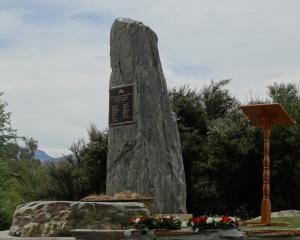Nobody would wish otherwise at such a time than that the welfare of the Empire should be the paramount consideration exercising the mind of every British subject.
In the face of a great test of the national strength and fibre the self-interest of individuals and the special interest of individual parts of the Empire must take a secondary place.
The attitude which expresses itself in a thirst on the part of the public for news from the seat of war is perfectly laudable.
Unfortunately, the eagerness for fresh tidings seems to be contributing to the circulation of various unauthenticated reports that are calculated to cause considerable anxiety even if they have no more mischievous effect.
Rumour travels quickly, and everybody should be well aware how easily fictitious stories gain popular credence and lend themselves to exaggeration.
It would be idle to speculate as to how some of the reports that have been circulated locally within the last forty-eight hours, some of them quite circumstantial in their detail, had their origin.
At such a time as this when definite news is looked for with feverish eagerness and is not forthcoming every hour, it is inevitable, of course, that there will be busybodies who will let their imagination run riot.
The circulation of unfounded reports is, however, distinctly undesirable, and it seems pertinent to warn the public against being over credulous.
It is sufficiently difficult to sift and weigh and estimate the reliability - a varying factor - of the cablegrams received by the newspapers from day to day, without paying serious attention to the garbled versions, not to say speculations, frequently emanating from the man in the street. Of authentic news of importance the public may rely upon the prompt circulation.
• Two announcements of importance respecting the New Zealand Expeditionary Force are contained in our news columns this morning.
One which was made by the Prime Minister in Parliament yesterday is to the effect that the force will be sent to Europe.
The impression has been formed that the destination of the force would in all probability be some country such as India or Egypt, where it might release for active service regular troops that at present constitute the British garrison.
The decision that the expedition shall be sent further afield may perhaps be attributed to the recognition by Earl Kitchener of the services performed by the colonial Contingents in South Africa.
It is to be remembered, however, that the warfare in Europe against the highly trained conscripts of Germany will be a very different matter from that of the Boer war.
The other interesting announcement that is made this morning is that, if arrangements to that end can be made, Major-general Godley will himself take command of the expeditionary representatives of the forces in the organisation of which he has taken the principal part.
It is an announcement that will be received with general satisfaction, for Sir Alexander Godley enjoys in a very large measure the confidence of the community as a tactful and trustworthy leader of men.
It is to be observed, moreover, that a considerable sprinkling of British officers, engaged on staff duties in the dominion, will occupy positions of responsibility in the force, while the services of Major H. T. Fulton, now of the Second Ghurkas, who held a command in the Fourth New Zealand Contingent in South Africa, have been accepted by the Government.
- ODT, 11.8.1914.

